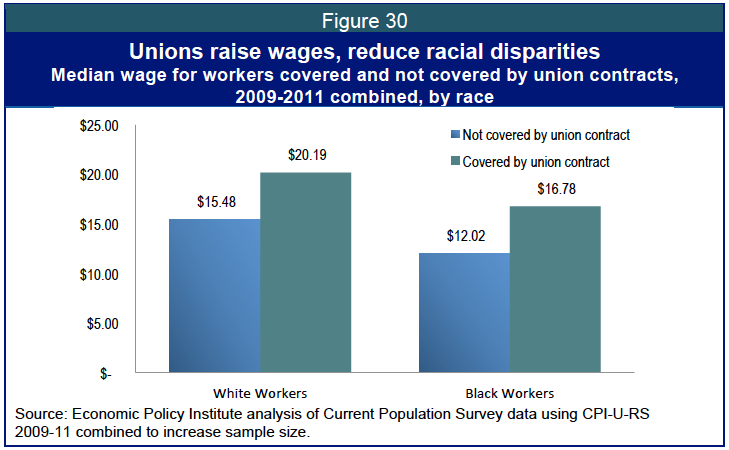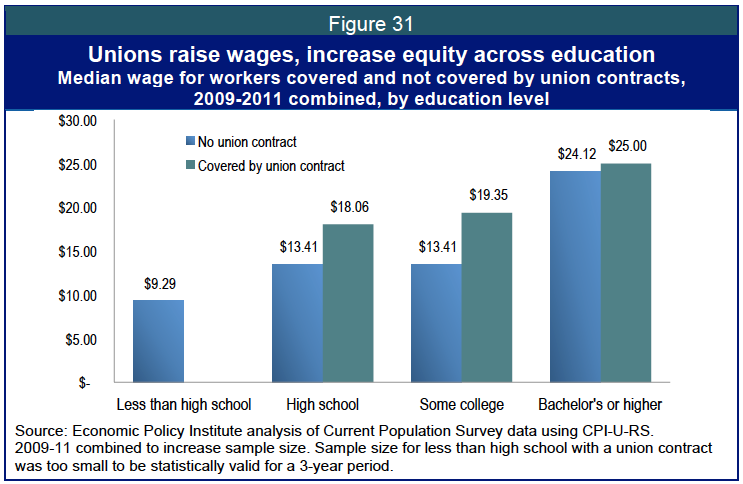
Unions raise wages
September 02, 2012
Unions raise wages
September 02, 2012
Next section
One way to address racial wage disparities is to encourage unionization. Being covered by a union contract increases the wages of black and white workers, but it increases African American worker wages to a slightly greater degree, thereby reducing the racial disparity from 23 percent to 17 percent. Black workers who are covered by a union contract earn more than white workers who are not covered by a contract, though not as much as white workers who have a union contract.
Just as unions reduce disparities across race, unions increase the compensation of workers with less leverage in the labor market because of their education levels. For a worker with just a high school degree, being covered by a union contract increases the median wage from $13.41 an hour to $18.06 an hour. Being covered by a union also helps those with a bachelor’s degree slightly – raising their median wage from $24.12 to $25.00 an hour on average over the three-year period of 2009-2011. But the contract provides a greater wage boost to workers with less formal education.
Previous sectionNext sectionPhoto Gallery
1 of 22

